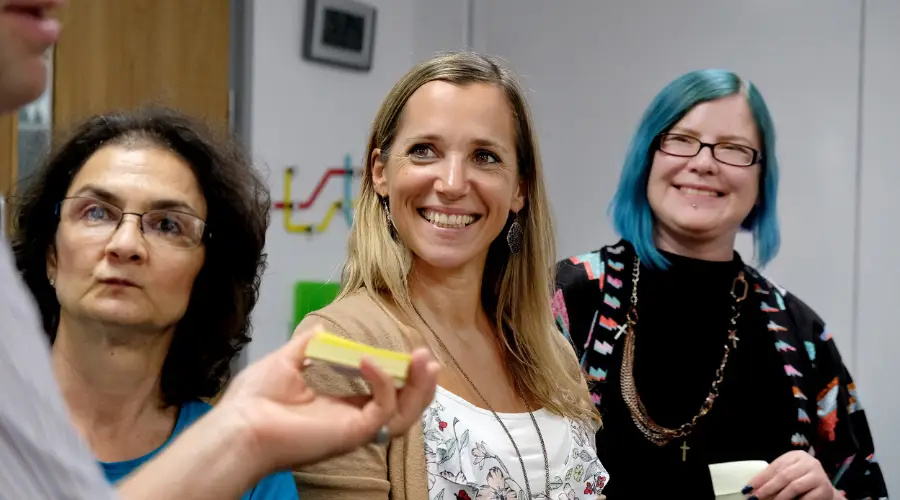The Importance of 2 Tracks For Promotion

A colleague at a client told me, when they started with the organisation, that their manager said to them:
“I’m not really a people person.”
“I probably won’t remember your name.”
“I would much rather be writing reports at my desk.”
What should that person be doing? They should not be managing people, and if they are good at writing reports, they should be well paid for it.
4 Ways To Improve Your Emotional Intelligence

Work. How does that word make you feel? Motivated? Challenged? Excited? Stressed? Depressed? Angry? Happy? The world of work is an emotional maelstrom. Recognising your feelings is the starting point to managing your responses and using them in a way that serves you best. And that, in a nutshell, is what Emotional Intelligence (EI), is.
What Are the Benefits of Employees Being in Control?

Last month I wrote a
LinkedIn post
suggesting that staff should decide the CEO’s salary, based on my own experience of doing just that.
So far it has received 344,000 views and 505 comments. And it seems to have been controversial.
How Happy Makes Space for Women in Leadership

You may have seen rather gleeful headlines recently reporting that Marie Kondo has relaxed her stance on tidying up after the arrival of her third child. These days she’s focusing less on the mess and more on the joy. We love this quote from her: “My home is messy, but the way I am spending my time is the right way for me at this time at this stage of my life.”
At Happy we were inspired by her idea of things sparking joy, so much so that our strapline is ‘Creating Joy at Work’. It’s something we practise, and we measure regularly, aiming for all of our staff to spend a high proportion of their time at work doing things that bring them joy.
How to Make Sure Your Next Project is a Success

It can feel as though these days everything is a project and everyone is a project manager. That represents a significant shift in organisational thinking from only a few years ago.
And everyone seems to have heard horror stories about bad experiences with projects (and project managers).
But what makes something a project, rather than just a complex piece of work?
And what can we do to give ourselves a better chance of success?
How Easy Is It to Get Things Done in Your Organisation?

Is your organisation one where people can move quickly and get new ideas out there, or is it stymied in levels of approval and hierarchy?
In this blog, Henry discusses some of the various approaches of several well-known companies, as well as Happy’s own policy towards this.
Why We Should Stop Asking For Degrees in Recruitment

Let’s stop asking for degrees in recruitment.
Santander recently announced that they would remove the requirement for a 2:1 degree from its graduate scheme, and is apparently the only bank to allow graduates with a third-class degree.
I would go beyond that and ask why degrees are necessary at all.
Maybe graduate schemes should be changed to simply employ the brightest and the best, whether or not they have a degree.
One Ridiculously Simple Thing You Can Do To Improve All Your Meetings

Most people are so busy going from meeting to meeting, with one meeting spilling over into the next. No time to plan meetings, no time to reflect on what might work better — just getting through the day. But there is one thing that brilliant leaders do all the time.
In this blog, Dr Carrie Goucher shares this one ridiculously simple thing you can do that will improve all of your meetings.
Happy to Make 4 Day Week Permanent

I’m now back from my sabbatical and, while I was away, our people at Happy decided to make the four-day week (currently a six-month pilot) permanent.
It has been a remarkable success. Here are the results of the survey that informed the decision to go permanent:
77% are sticking to the 32-hour week, with 23% working only one or two hours over
Everybody says they are getting as much done as they did before
Everybody says their wellbeing is better




